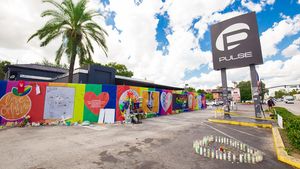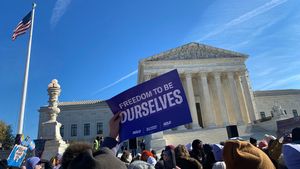Denying the results of the 2020 presidential election affected Republican candidates in the 2022 midterms, according to newly published data.
A new study from States United Action found that support for Republican candidates at the state and local levels fell by 2.3 to 3.7 percentage points in 2022. While this may not seem like a lot, even a 2.3 drop was detrimental enough to affect races in swing states, including the races for governor and attorney general in Arizona, and Senate elections in Nevada and Georgia.
"For the majority of Election Denier candidates, lying about our elections wasn’t just bad for democracy, it was bad for them politically," the report reads. "Voters imposed a clear cost for election lies in statewide races where these candidates were running to oversee elections."
"While that’s good news for our democracy and especially for voters in those states, our free and fair elections remain at risk," it continues.
Election-denying Republicans formed the America First coalition, organized by Jim Marchant, the Republican nominee for secretary of state in Nevada. In every battleground state, the coalition candidates lost.
While Republicans faired better in the 2018 midterms where there were no claims of election denial, 15 seats were still filled by election deniers in 2022, joining eight who were already in office. As the report notes, even "one Election Denier in office is dangerous."
While most swing states will not have governor and secretary of state elections until 2026, Senate races will determine control of the chamber. Despite their negative impact, several Republican candidates — including frontrunner for the 2024 presidential election Donald Trump — have continued to espouse denialist lies.
"Election Deniers are clearly not stopping or slowing down post-2022 losses. Election Denial continues to shape our election landscape in dangerous ways, from both inside and outside of elected office," the report reads.



















































